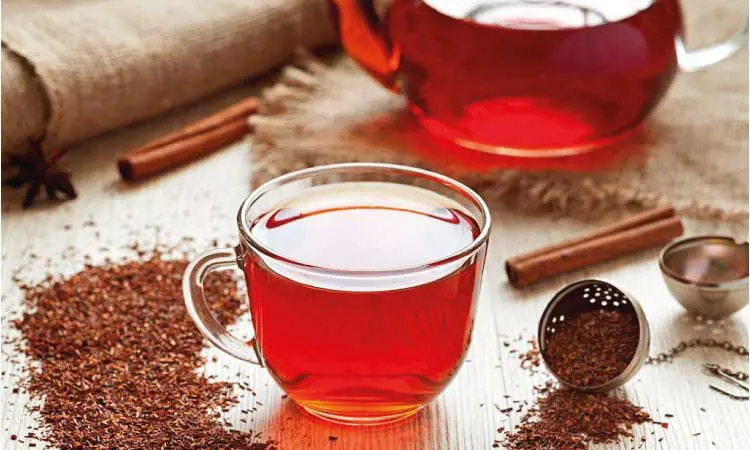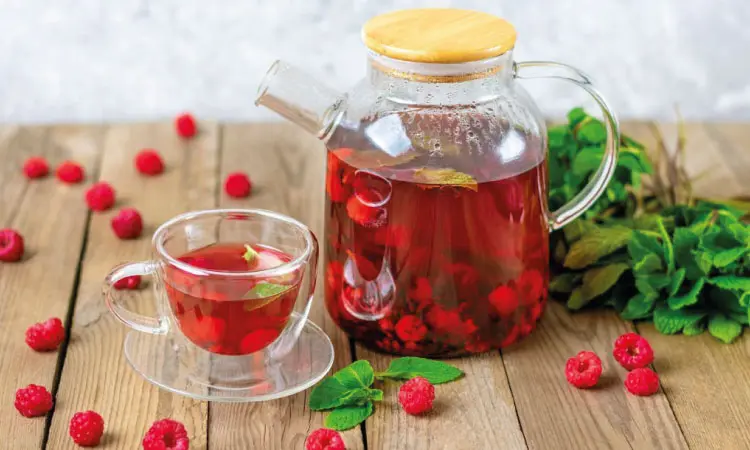Always a ‘chai’ drinker, once I became pregnant, the first and foremost question I had was whether it is safe to drink ‘chai’ during pregnancy. An avid ‘chai’ lover, doing without the Indian tea during pregnancy was simply unfathomable for me. Though I do like some of the herbal teas such as green tea, chamomile tea and even black tea, yet what makes me look forward to my day is surely the desi ‘chai’. So I did some research and here is what I found on drinking Indian tea during pregnancy.
Drinking Indian Tea During Pregnancy (Chai During Pregnancy)
The most worrying context with respect to drinking any tea during pregnancy is the caffeine content in it. Also, certain medical conditions may also prohibit one to drink tea during this delicate period. In this regard, it is best to consult your doctor first who is your best guide and will advise you according to your medical history.
Coming to caffeine, if you thought that it is present only in your cup of comfort, you are wrong. Your favourite bar of chocolate, that soft drink, that yummy cake you just had all have some amount of caffeine in it. Having said that, studies have it that caffeine does cross the placenta and stimulates the baby, just like you get stimulated by it.

The difference here is that while your body is adept to eliminate caffeine fast, your baby’s metabolism cannot. A fetus does not carry the enzymes required to break down and metabolize caffeine. This means caffeine stays in your baby’s body for a longer time and can cause complications such as impaired fetal growth, congenital malformations, birth defects, stillbirth, and even miscarriage1.
This is why when pregnant, your caffeine intake must be strictly monitored and remain within permissible limits.
Moreover, tea is diuretic in nature and you will need to use the loo several times a day. This also causes water loss during pregnancy.
Related Reading: What Teas Are Safe To Drink While Pregnant?
How Much Caffeine Is Safe During Pregnancy?
During pregnancy, 300 mg/d of caffeine is considered to be fine – but mind you, this has to all sources of caffeine put together. A cup of regular ‘chai’ contains about 40-50 milligrams of caffeine- depending on tea leaves, steeping time and temperature etc. So in order to have total caffeine less than the maximum limit, you should not have more than 2 cups of ‘chai’ during pregnancy.
Calculate Due Date With LMP
Remember, caffeine is a stimulant and may mess with your sleep, heart rate and blood pressure. In case you have a complicated pregnancy or already suffering from heart issues, it is best avoided.
Drinking Herbal Teas During Pregnancy
Herbal teas in pregnancy are considered safer because they have lower caffeine content. Unlike non-herbal teas which are made from leaves of tea plants, herbal teas use berries, flowers, roots etc. of various plants Nonetheless, not all herbal teas are safe for consumption. Some herbal teas that you can have during pregnancy are-
Rooibus tea

An excellent alternative to tea with zero caffeine content and full of antioxidants properties, consider having rooibos tea during pregnancy. It also offers zinc, iron, calcium, magnesium while also easing digestion and boosting immunity.
Ginger tea
Many pregnant women suffer from nausea during pregnancy and ginger tea is particularly helpful for them. Apart from offering a great taste, ginger tea soothes throat and nasal infections, eases morning sickness and provides warmth in the body.
Peppermint tea
Another option to combat pregnancy nausea, the peppermint tea is as refreshing as it is potent with health benefits. It helps in morning sickness and nausea and boosts energy. However, some experts suggest it should be avoided in the early stages of pregnancy as it can cause menstruation and thus miscarriage, however, small regulated consumption is unlikely to cause any harm. Err on the side of caution.
Related Reading: Lemon Tea During Pregnancy- Benefits, Risks And Precautions
Nettle tea
Another great alternative to ‘chai’, nettle tea is recommended to be consumed during the second and third trimesters of pregnancy. This is so because nettle tea is believed to cause uterine stimulations and is best avoided during the initial stages of pregnancy. Apart from providing water-soluble iron, magnesium and calcium, Vitamins A, C, D, and K nettle tea cleanses the kidneys, and helps diminishing pain during and after birth.
Red raspberry leaf tea

Another tea to be particularly had towards the end of your gestation period is the raspberry tea. Known to trigger contractions, it is not recommended to have it in both the first and second trimester of pregnancy. Also, it is believed to prevent post-partum hemorrhage and aid in better contraction of muscles during childbirth.
Chamomile tea
Considered as one of the most soothing teas, chamomile tea is considered safe during pregnancy if consumed in moderation. Packed with antioxidant, anti-inflammatory and astringent properties, it calms the mind and is excellent herbal tonic if you are unable to sleep at night. It reduces anxiety, so during times when you can’t stop worrying, it can be consumed just to calm down your mind. Yet, remember to discuss this with your doctor.
Green tea
Can I drink green tea during pregnancy is one of the most common doubts in the minds of pregnant women. Green tea is not really a herbal tea because it does contain caffeine, though in smaller quantities than your regular ‘chai’ or coffee. Having said that, green tea is also known to interfere with the consumption of folic acid during pregnancy, which is actually critical for fetus especially during the early stages of pregnancy.
There are plenty of options to choose from! However, do note that teas containing fennel, star anise, or teas specifically for cleansing or detoxification are completely off the list as they can cause uterine muscles to relax and you may bleed. Fennel and star anise teas specifically contain compounds that promote menstruation.
Can I Have 2 Cups Of Tea While Pregnant?

If you are having lightly brewed tea during pregnancy, then 2 cups should be okay, provided you are also monitoring your caffeine intake from other sources. Drinking Indian tea during pregnancy is not a concern as long as you are having it in moderate quantities and lightly brewed.
For your reference, if you are having an Indian tea brand during pregnancy, the per cup caffeine content is listed in this research paper2. You can check and even change your tea brand if the one you have has higher caffeine content.
Decide on having a tea during pregnancy after weighing all pros and cons. Not just your medical condition, but also your caffeine intake, taste and preference. Remember to steep the tea lightly and using a mild taste brand. Chai during pregnancy is safe as long as the consumption is moderated, and method of preparing is monitored. Enjoy your Indian tea during pregnancy in moderate quantities.
